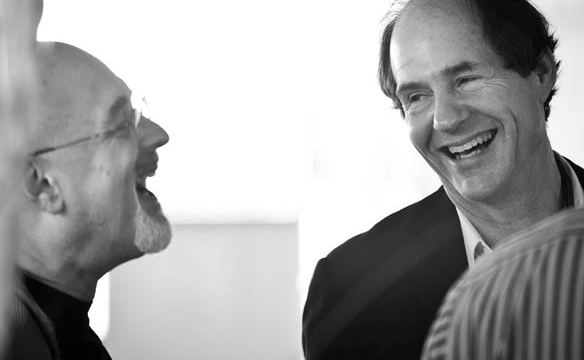Ray Kurzweil: Memorization is For Robots. People Learn By Doing.
What’s the Big Idea?
What do elementary pedagogy and artificial intelligence have in common? Leaders in both fields have abandoned the study of the trees for that of the forest.
From preschool through high school, progressive educators have long advocated for project-based learning as against old-school rote memorization. The goal is transferability of knowledge, as opposed to narrow, domain-based learning. Young children, for example, master the principles of addition faster, and can apply them more broadly, by grouping real-world objects than by manipulating numbers on paper.
A similar shift is happening in the field of artificial intelligence. Scientists are significantly improving machine-thinkingby reverse-engineering human cognition. According to Ray Kurzweil, a pioneer in voice recognition technology and the author of How to Create a Mind: The Secret of Human Thought Revealed, the future of artificial intelligence is in pattern recognition. The basic algorithms of human thought, Kurzweil says, just aren’t that complicated. From an observation about the weather to a sophisticated joke, cognition at every level operates according to a few simple principles. Researchers have gotten lost, he says, in the diversity and complexity of individual neurons and are missing the bigger picture.
Video: Ray Kurzweil on project-based education
What’s the Significance?
While he believes that our destiny is to outsource much of what we’ve traditionally called “thinking” to machines, Kurzweil is a strong advocate for education. Not surprisingly, he rejects rote learning (“we have machines for that”) in favor of project-based learning at every level, from Kindergarten through graduate school. At Singularity University, which Kurzweil co-founded, students form small groups to tackle enormous problems like climate change. Whether or not a given project succeeds isn’t exactly the point – the point is that in struggling to come up with creative solutions, the students learn powerful problem-solving approaches they’ll be able to build upon, to develop more sophisticated forms of strategic thinking.
The project-based approach has its critics, of course, both in education and in computer science. Opponents of the holistic learning movement argue that it throws the baby out with the bathwater, failing to teach basic and essential skills like multiplication. The political backlash in elementary public schools takes the form of programs that promote a “back to basics”, “skill-based” approach. And Microsoft co-founder Paul Allen argues that attempting to “reverse-engineer” the brain with our limited, present day knowledge is like asking medieval scientists to reverse-engineer a jet engine.
Both Kurzweil and the most sophisticated educator-advocates of project-based learning would argue that the question is one of orientation. For example, while voracious readers develop strong and contextually rich vocabularies, vocabulary flash cards can be valuable scaffolding for any student. But if the goal is to produce powerful communicators and critical thinkers, the emphasis needs to be primarily on reading rather than on amassing vocabulary or diagramming sentences. Likewise, Kurzweil and his fellow deep-learning theorists owe and acknowledge an enormous debt to detail-oriented neuro- and cognitive science, but their progress relies on identifying and building upon a few simple principles of how the mind operates.
As neuroscience, cognitive science, computer programming, and artificial intelligence progress, we’re understanding better and better how we learn. The promise for education is that we’ll gradually move away from vacillating between idiosyncratic experimentation and traditionalism, and toward methods of learning that will capitalize on our brain’s unique capacity for curiosity, discovery, creativity, and intellectual delight.
Follow Jason Gots (@jgots) on Twitter
Image credit: Shutterstock.com





